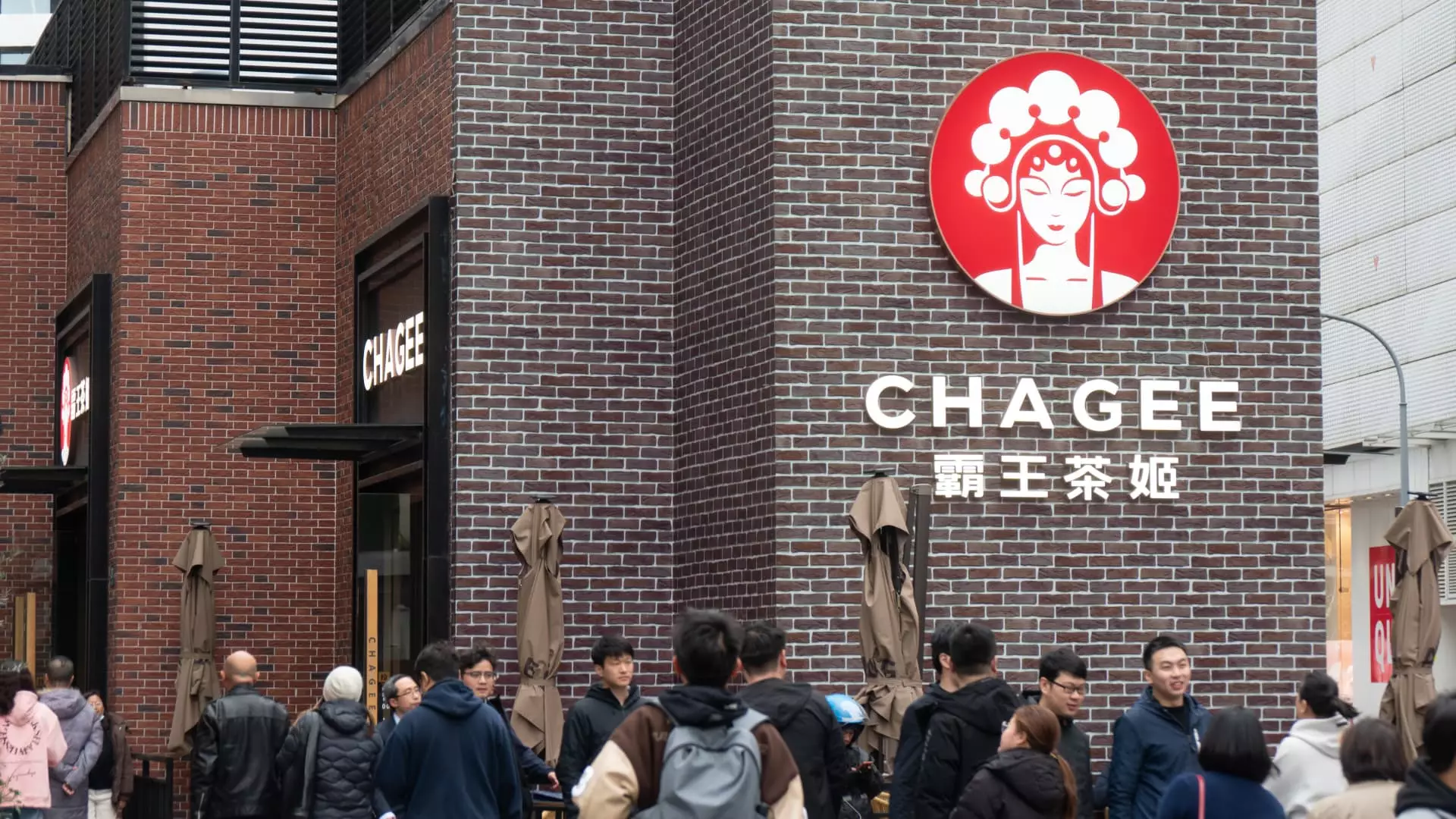In a daring move, the Chinese bubble tea chain Chagee has filed for an initial public offering (IPO) on the Nasdaq under the ticker “CHA.” This unveiling comes on the heels of the company’s upcoming debut store in Los Angeles, set to open this spring at the Westfield Century City Mall. While the ambition to tap into the extensive American market is commendable, it presents risks that could shroud this endeavor in uncertainty. With its founding rooted in the innovative revamping of traditional tea drinking, one might question if the Chagee brand can withstand the potential turbulence of entering a market where it has no established roots.
A Frightening Landscape for Chinese Companies
The IPO comes at a time when the relationship between the U.S. and China is anything but stable. Between January 2023 and January 2024, there was a 5% decline in the number of Chinese firms listed on major U.S. exchanges—an alarming statistic for a developing company like Chagee seeking a foothold in such turbulent waters. U.S. sentiment towards Chinese companies has soured, and investors are increasingly cautious following high-profile instances of corporate mismanagement and deceit, such as the Luckin Coffee scandal. In an atmosphere rife with skepticism, Chagee may not receive the warm welcome it hopes for, demanding that it not only inspire excitement about its brand but also instill trust among potential investors.
The High Stakes of Modern Tea Culture
Founded in 2017, Chagee exploded onto the scene, with aspirations of setting a new standard in tea consumption akin to that of top-tier coffee establishments. The chain now boasts over 6,400 outlets, with a staggering 97% located within China. It has recently reported a remarkable net income of $344.5 million, derived from revenues of $1.7 billion. While these numbers might appear impressive on paper, they prompt deeper inquiry into whether the company can replicate such success outside its homeland, especially with a target of reaching a hundred countries and serving 15 billion cups of freshly brewed tea annually.
This lofty vision, while exhilarating, invites skepticism. The cultural nuances of tea drinking may not translate seamlessly across different demographics. The U.S. market is inherently diverse, and it’s unclear whether Chagee’s offerings will resonate with consumers who might already be loyal to established players in the beverage market.
The Ghosts of Past Endeavors
Chagee’s entry into the public market emulates Luckin Coffee’s trajectory in some respects, yet it also carries the burden of past failures. After skyrocketing to fame, Luckin Coffee was marred by scandal, leading to a swift delisting from the Nasdaq. While it has returned to the forefront as China’s largest coffee retailer, the path to redemption was fraught with challenges and loss of trust. Chagee will need to be exceptionally mindful of investor sentiment and tread with caution to avoid these pitfalls, which could severely hinder its IPO success.
Mission Impossible: Matching Ambition with Authenticity
Chagee’s aspiration to create 300,000 jobs worldwide resonates deeply in an economy desperately seeking growth and innovation. However, lofty ambitions must be matched with tangible and authentic outcomes. As it positions itself for a period of rapid expansion, the company’s capability to fulfill its promises in the mixed cultural landscape of the U.S. remains a lingering question. The outcome of Chagee’s approach to the IPO will remain one of the most significant watchpoints in the coming months, raising critical conversations about the interplay of globalization, national sentiment, and corporate ethics.

